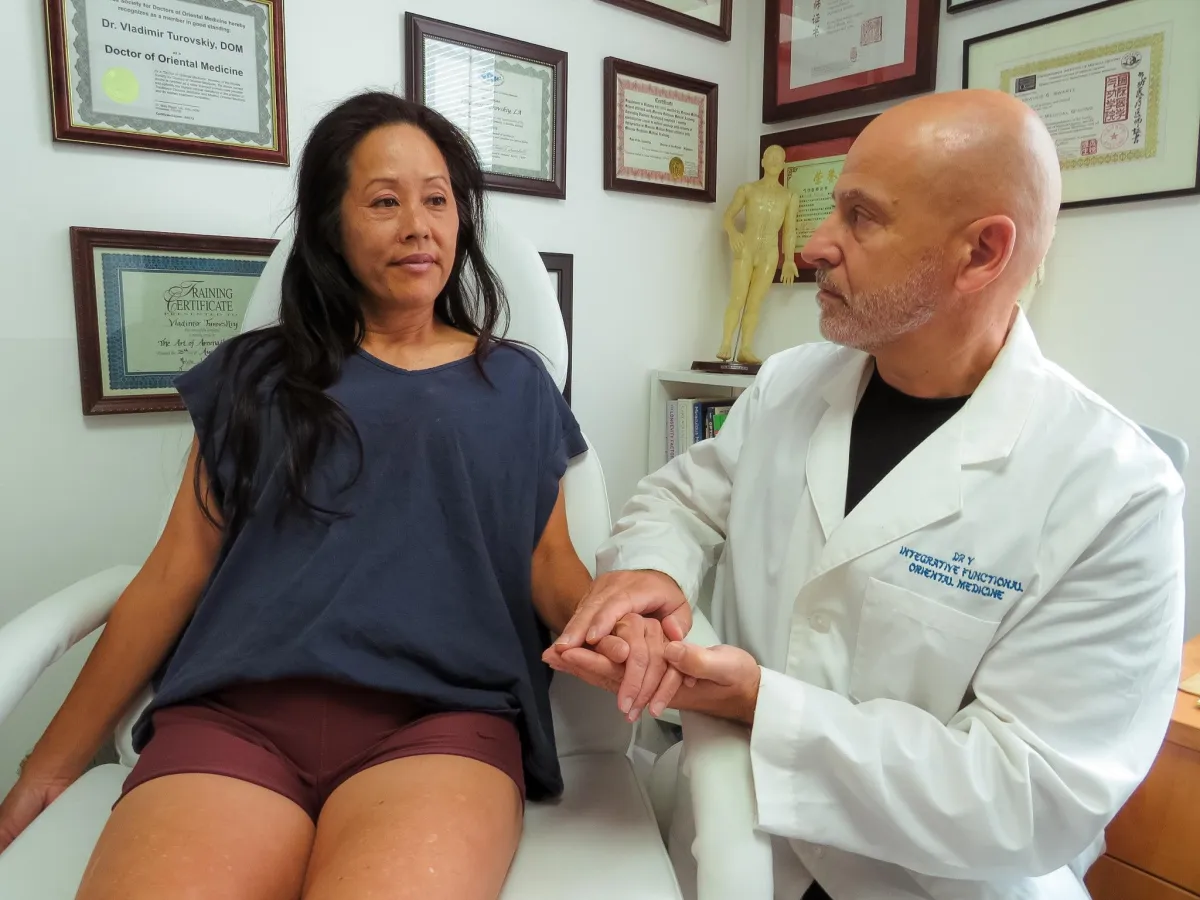
Dr. V Clinic Miami, FL
Wake up tomorrow
to a happy, calm,
pain-free life.
Join Thousands of our patients who wake up to an energetic, content, pain-free & calm life.
Aventura & Miami, FL
That's DrV
At Dr V Clinic, we seamlessly blend modern treatment and diagnostic methodologies with the time-honored wisdom of Acupuncture and Oriental medicine. Our cutting-edge 21st-century technologies, including computer blood analysis, laser therapy, far-infrared therapy, and electromagnetic therapy, are harmoniously integrated with traditional healing modalities such as acupuncture, homeopathy, herbal therapy, manual therapy, hypnotherapy, and nutrition.


Advanced scientific diagnosis to pinpoint the root of your issue

Expert treatments targeting your unique individual needs.

Predictable outcomes, clear timelines, and guaranteed results.
Vladimir Turovskiy, DrV Founder:
"You can continue to rely on temporary solutions to suppress your pain, anxiety, to try to knock you out in the evening and try to boost you in the morning and afternoon - This is not a permanent resolution and comes with a price. Or you can turn to the comprehensive approach of integrative medicine and experience significant improvements in your entire condition."
Featured In

















Explore Our Services
Google Reviews

Great spot to leave stress and better your overall emotional well being :)) thank you Vladimir!
Maxim E.

Dr V is incredible! I came with pains in my shoulder and neck and received an acupuncture treatment. I felt almost instant relief after leaving the appointment. He is very professional
and definitely knows what he’s doing. I cannot recommend him more!
Melony S.

Amazing Staff and the Doctor knows exactly what he is doing. The treatment i received helped me with neck spasms. 10/10 experience will be coming back for more treatments.
Steven M.
DrV Clinic
Of Integrative
Oriental Medicine!
